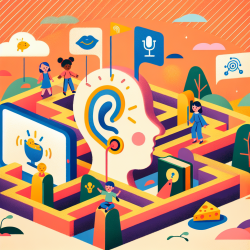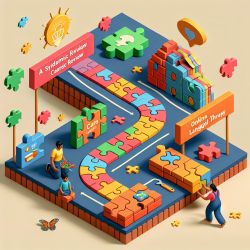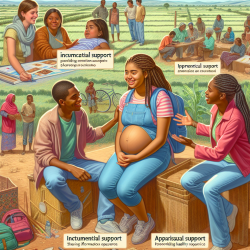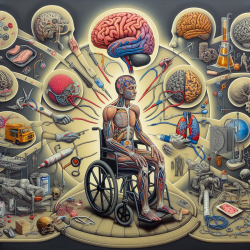As a passionate advocate for data-driven decisions in speech-language pathology, I am always on the lookout for innovative, evidence-based practices that can enhance the outcomes for children. A recent study titled "Yoik experiences and possible positive health outcomes: an explorative pilot study" provides intriguing insights into the potential benefits of yoik, a traditional Sami vocal music form, on health and well-being. This research could be a game-changer for practitioners looking to incorporate culturally sensitive interventions into their therapy sessions.
Yoik is an ancient vocal tradition of the Sami people, known for its unique ability to convey deep emotional and cultural connections. The study explored whether yoik could positively influence health outcomes, drawing parallels to the well-documented benefits of Music Therapy (MT). The findings suggest that yoik, much like other forms of MT, can contribute to emotion management, helping individuals process negative emotions and induce positive ones.
Here are some key takeaways from the study that can be applied in practice:
- Emotion Management: Yoik has been found to evoke feelings of joy, connection, and honor. Incorporating yoik into therapy sessions could help children manage their emotions more effectively, reducing anxiety and promoting a sense of well-being.
- Cultural Connection: For Sami children, yoik can serve as a powerful marker of cultural identity and belonging. Using yoik in therapy can help these children feel more connected to their heritage, fostering a positive self-identity.
- Self-Expression: Yoik provides a unique means of self-expression, allowing children to communicate their feelings and experiences in a culturally resonant way. This can be particularly beneficial for children who struggle with traditional forms of communication.
Given the promising findings of this pilot study, it is crucial for practitioners to consider the potential benefits of integrating yoik and other culturally specific music forms into their therapeutic practices. This not only enriches the therapy experience but also ensures that interventions are culturally sensitive and tailored to the unique needs of each child.
Moreover, this study underscores the importance of further research into the connections between indigenous music traditions and health outcomes. As practitioners, we should advocate for and participate in such research to expand our understanding and improve our practices.
To read the original research paper, please follow this link: Yoik experiences and possible positive health outcomes: an explorative pilot study.
By embracing the insights from this study, we can enhance our therapeutic approaches and create better outcomes for the children we serve. Let’s continue to explore, innovate, and integrate culturally sensitive practices in our quest to improve child development and well-being.










